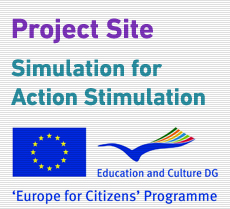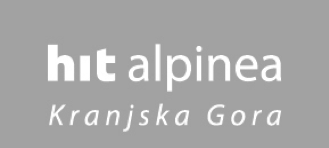PUBLIC DEBATES – LESSONS LEARNED
During the preparation phase leading up to the main event of the project the partners organized 6 different public discussions on 6 different topics with a total attendance of 600 people. The topics for the discussion were selected based on the identified interest of the audience and on the regional specifics under the theme of the project. In majority of cases the partners decided to organize round table discussions on topics of youth, since they are their primary public. The issues discussed ranged from youth poverty to violence in the family, mobility and employment / education. Romanian partners decided to discuss the anti-counterfeiting trade agreement ACTA and the in Za in proti focused on the question of survival of the welfare state in times of economic crisis.
Not only the topics varied, but also the formats of the discussion and places where they were organized. We had public discussions organized in parks (Estonia), libraries (Slovenia), schools (Slovakia, Croatia), Senate of the Parliament (Czech Republic) and a theatre (Romania). Some partners decided to incorporate the discussion as a part of a broader event and some as an individual event. Guest speakers on public discussions ranged from academics, political representatives, NGO workers, students, counsellors, etc…. All public discussions were well attended but struggled to attract major media coverage, which is, based on the experience of the partners, one of the major struggles that we face when trying to get our message across.
Here are short description of public discussions as presented by the partners coordinators: Bojan Marjanović from Croatia: ‘The main goals of the discussion were to shed light on the main reasons for relatively high youth unemployment and low levels of youth mobility (both social and geographical) among youth in Croatia. Reform to the educational system was proposed as a long term solution with emphasis on practical knowledge and up to date information needing to find their way into curriculum.’ Serban Pitić from Romania: ‘Topics discussed: ACTA, intellectual property, patents, current intellectual property issues, EU parliament issues, EU scepticism, ACTA protests. Challenges: Changing current situation with ACTA, understanding concepts of intellectual property, EU activism, equipping us to face similar issues in the future. Solutions proposed: staying informed, talking to political involvement, petitioning, showing representatives that youth has an opinion. “Kai Klandorf from Estonia: ‘The topic was chosen on the basis of the topics connected to the theme of the project, youth issues through the lens of the current socio-political framework of the EU (Lisbon Treaty, Europe 2020)The main issue for this particular debate was child poverty. It is a very burning topic in Estonia at the moment because the statistics in this area are relatively catastrophic. In 2010 approximately 26% of children under 18 were considered to live in absolute poverty. The main debate topic was however related to whether we should subsidise children in developing countries. After the debate there was an open discussion related to practices and things that could be done in Estonia to reduce child poverty.’ Michael Pečena from Czech Republic: ‘The topic of the discussion was domestic violence; special emphasis was put on the impact of domestic violence on the youth. Mr. Vydra briefly introduced the audience to the basics of the issue and identified the typical problems which he deals with in his work for the Crisis Intervention Centre. Given that a majority of the audience was formed by teenagers, most questions concerned domestic violence among partners, and especially the issue of prevention – whether there any methods by which one can avoid finding a potentially violent spouse.’ Matuš Huba from Slovakia: ‘In the discussion that followed the debate, audience and guests took on various topics concerning role of the state when it comes to unemployed, social security and standards that state has to/should/doesn't have the obligation to meet. Also a question of sustainability of welfare state was discussed from regional (Eastern Slovakia), national and international perspective.’ Anja Šerc from Slovenia: ‘The context of the discussion was to analyze the dominant policy solutions to the European economic crisis and its possible impacts on the political unity of the European Union. The speakers were asked to evaluate the prevailing policy proposals in the light of their impact on the idea of a European social state. Can this model survive the neoliberal interventions and to what extent does it harm the process of European integration? All of the speakers were unanimous in their judgment about the faith of the European social state. They expressed great concern about the consequences of neoliberal interventions on the protection of social rights across Europe and expressed warning over the possible implications this might have in terms of political polarization. The main message of the round table discussion was that European economic crisis needs a plurality of answers and cannot be solved following one single recipe.’
At the international event public discussions were analyzed in terms of how to intensify the struggle to get the message across, how to best attract media coverage and how to pick ‘the right topic’. In the Chapter that follows we offer a set of guidelines that in our experiences work best and that we’re sure will help you in organizing public discussions. Additionally, if you visit the web page of the project you can find additional explanations about the implementation of the public discussions, some videos and photos.
Vabilo na javno razpravo 'Konec Evrope? Iskanje družbeno-političnih alternativ v politični krizi'
Ali lahko Evropska unija politično preživi finančno krizo? O kakšnih alternativah trenutnemu redu sploh lahko razmišljamo? Kakšne so posledice ohranjanja trenutne družbeno-ekonomske ureditve? So spremembe neizogibne, ali je politična kriza v Evropi le prehodnega značaja?
To so le nekatera vprašanja, ki jih bomo na javni razpravi 'Konec Evrope? Iskanje družbeno-ekonomskih alternativ v politični krizi' naslovili z gosti v Knjižnici Otona Župančiča v Ljubljani v četrtek, 31.5.2012 ob 18:00.
Ker verjamemo, da je v družbi več možnih odgovorov na ta vprašanja, in ker se nekatere rešitve preredko slišijo v javnem prostoru vas vabimo, da skupaj z gosti o tem spregovorimo.
Na razpravi bodo sodelovali:
Marjan Horvat, novinar Mladine
dr. Primož Krašovec, raziskovalec '/…/ ki v modernem jeziku govori o politični ekonomiji Evrope' (Ervin Hladnik-Milharčič), član gibanja Mi smo Univerza, predavatelj na Delavsko-punkerski univerzi
Tanja Lesničar Pučko, kolumnistka Dnevnika in pronicljiva opazovalka družbeno-političnega dogajanja, zvesta spremljevalka kulture in prevajalka
dr. Jože Vogrinc, profesor na Filozofski fakulteti Univerze v Ljubljani
Razprava je del projekta Simulation for Action Stimulation, ki ga finančno podpira Program Evropa za državljane, Evropska komisija in poteka v sklopu tedna evropskih refleksij v sodelovanju s Knjižnico Otona Župančiča (31.5.–6.6.2012).
Pri sooblikovanju dogodka lahko sodelujete že danes. Napišite svoja vprašanja, komentarje, pomisleke na 'ta zid' , in potrudili se bomo, da jih prenesemo tudi v javno razpravo.
Celotni video posnetek razprave si lahko ogledate tukaj.




